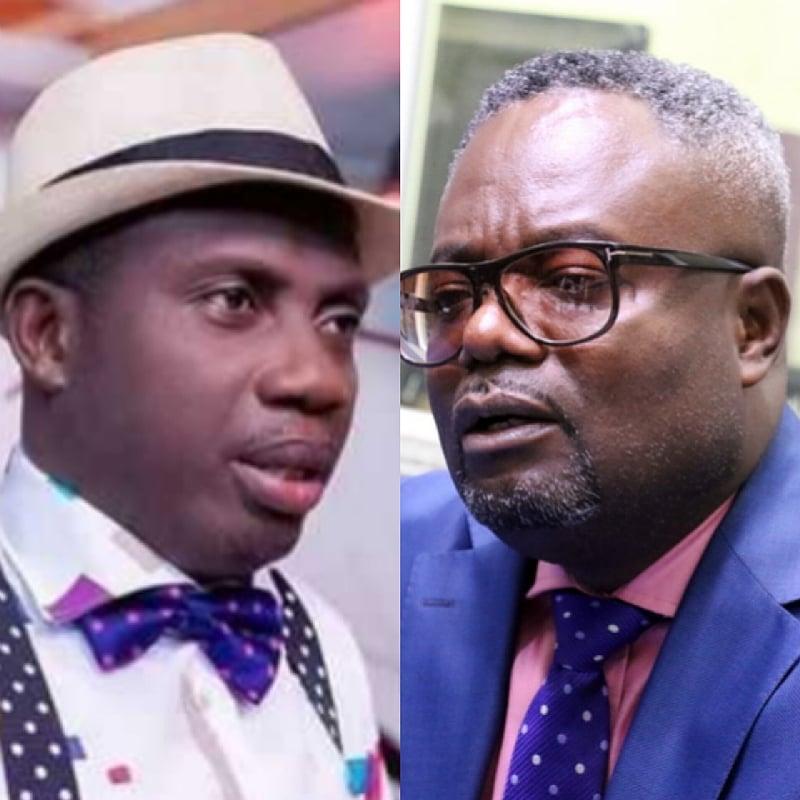The recent tragic military helicopter crash in Ghana has ignited a firestorm of controversy surrounding the insensitive remarks made by Kofi Akpaloo, leader of the Liberal Party of Ghana. Akpaloo’s dismissive comment, “Even children die, so if these old men have died, what is the issue?”, sparked widespread outrage and condemnation, with many deeming his words disrespectful and insensitive to the deceased military personnel and their families. This incident has prompted calls for accountability, with Counselor Lutterodt, a controversial media personality, leading the charge for sanctions against Akpaloo. Lutterodt, while acknowledging Akpaloo’s subsequent apology, insists that forgiveness should not preclude consequences for such egregious public statements.
Lutterodt’s central argument revolves around the principle of responsibility, particularly for public figures who wield considerable influence. He contends that Akpaloo’s comment trivialized the immense sacrifice made by the deceased servicemen and minimized the profound grief experienced by their families and the nation as a whole. The fact that these individuals lost their lives in the line of duty, serving their country, makes Akpaloo’s dismissive comparison to the death of children even more reprehensible, according to Lutterodt. He argues that such statements erode public trust and respect for those in positions of authority, and contribute to a climate of insensitivity and disregard for human life.
The crux of Lutterodt’s proposed solution centers on media accountability and control. He advocates for a temporary ban on Akpaloo from media appearances, ranging from several days to a month, as a form of disciplinary action. Lutterodt believes that this measure would not only serve as a deterrent against future insensitive remarks by Akpaloo but also send a strong message to other public figures about the importance of exercising caution and empathy when addressing sensitive national tragedies. He emphasizes the need for increased vigilance from media outlets in monitoring and filtering the content of interviews, particularly during periods of national mourning or crisis. This, he suggests, will prevent the amplification of reckless and hurtful statements that can exacerbate emotional distress within the community.
Beyond the specific case of Akpaloo, Lutterodt’s call for stricter media controls reflects a broader concern about the ethical responsibilities of media platforms and the potential for their misuse. He highlights the crucial role that media plays in shaping public discourse and influencing perceptions, particularly during times of national tragedy. In such sensitive contexts, irresponsible reporting or the dissemination of insensitive statements can inflict further pain on grieving families, escalate tensions within society, and undermine the healing process. Lutterodt argues that media organizations have a moral obligation to prioritize empathy and respect, and to act as gatekeepers against potentially harmful or inflammatory rhetoric.
While Lutterodt’s position underscores the importance of media accountability, it also raises questions about the balance between freedom of speech and the need to protect individuals and communities from harm. Some argue that imposing temporary bans on individuals could be seen as a form of censorship, potentially stifling free expression and limiting the ability of individuals to engage in public discourse, even if their views are unpopular or controversial. However, Lutterodt counters this argument by asserting that freedom of speech is not absolute and that it comes with responsibilities. He argues that in cases where statements are demonstrably insensitive, disrespectful, and potentially harmful, temporary restrictions on media access may be justified to protect the public interest and prevent further distress.
The incident involving Kofi Akpaloo’s insensitive remarks has sparked a vital conversation about the role of public figures, media responsibility, and the delicate balance between freedom of speech and the need for empathy and respect, especially in times of national tragedy. Lutterodt’s call for sanctions and stricter media controls underscores the importance of accountability and the need for heightened sensitivity in public discourse. While the debate about appropriate responses and the limits of free speech continues, the incident serves as a stark reminder of the power of words and the potential for them to cause harm, particularly during moments of collective grief and vulnerability. It highlights the critical need for responsible communication and ethical media practices to promote healing, understanding, and respect within society.














